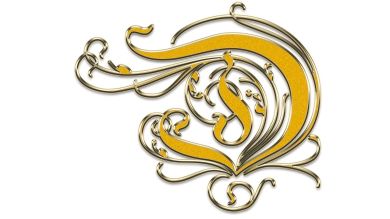Many surnames have dark origins, and some of them sound quite weird. But where do these names come from? And what do they mean? Most surnames originated from a place name, a personal name, or an occupation. Many dark surnames are derived from words meaning “black” or “dark.” For example, the surname “Black” comes from the Old English word blæc, which means “black.” Other dark surnames include “Brown,” “Gray,” and “Knight.”
Some dark surnames have troubling origins. For example, the surname “Murder” is derived from the Old English word morthor, which means “murder.” The surname “Devil” comes from the Old English word deofol, which means “devil.” And the surname “Hell” comes from the Middle English word helle, which means “hell.”
Fortunately, not all dark surnames have such dark origins. The surname “Cook” is derived from the Old English word coc, which means “cook.” The surname “Baker” is derived from the Old English word bæcere, which means “baker.” And the surname “Butler” is derived from the Old French word botelier, which means “butler.” Read on to find more dark last names!
Origins of Dark Last Names

The vast majority of last names in the world are derived from a single name given to an individual by their parents or another ancestor. This name is passed down through the generations, with each successive generation adding its variation. However, some last names have a more sinister origin. These names were not given to individuals by their parents but were instead chosen by those in power to humiliate and control certain groups of people.
The Dark Side of a Name
We all know that last names can tell a lot about a person. They can give us an understanding of someone’s heritage, family history, and personality. But what about the dark side of a name? Last names can also be a source of shame and embarrassment. Many people’s last name is associated with negative purposes and stereotypes. It can be especially true for those with so-called “dark” last names.
These last names are often associated with criminal activity, violence, or other disagreeable activities. As a result, many people with dark last names feel like they have to live up to these negative stereotypes. It can be a heavy burden, making it difficult to lead a normal life. If you have a dark last name, don’t despair. There are plenty of successful, well-adjusted people with dark last names. You have to work harder to overcome the negative mind associated with your name.
The 10 Most Popular Dark Last Names
- Dracula – Dracula is derived from the Romanian word for dragon, Dracul. The name was first used in Wallachia (an area in modern Romania) in the 15th century by Vlad III Dracula, who was known for impaling his enemies.
- Frankenstein is derived from a German word meaning “stone of the Franks.” The name was first used in the novel Frankenstein by Mary Shelley, in which a doctor creates a monster from the body parts of dead people.
- Mordred – Mordred is derived from Welsh words meaning “great king.” The name first appears in the Arthurian legend, where Mordred is Arthur’s traitorous nephew who kills him in battle.
- Darth Vader – Darth Vader is derived from Dutch words “dark father.” George Lucas created the name for the Star Wars character, and it first appeared in the film The Empire Strikes Back (1980).
- Sauron – Sauron is derived from the Sindarin word for “abominable.” The name was first used in J.R.R. Tolkien’s The Lord of the Rings, where it belongs to the Dark Lord, who created the One Ring to rule over all others.
- Voldemort is derived from a French word meaning “flight of death.” J.K. Rowling invented the name for her Harry Potter series, which belongs to the evil wizard who killed Harry’s parents and tried to kill.
- Doyle: Originally derived from the Gaelic word for “dark-haired.” Used as a derogatory term for Irish people by the British during the 19th century.
- Watts: Originally derived from Old English, meaning “dweller by the water.” Used as a dark term for Scottish people by the English during the Middle Ages.
- Boyd: Originally derived from Scottish Gaelic, meaning “yellow hair.” Used as a derogatory term for an ancient Scottish surname during the Middle Ages.
- Moreno: This surname means dark-skinned, commonly used for someone with dark hair. It’s a Jewish and Spanish name that was commonly used during the Christian kingdoms of medieval Spain.
The 05 Darkest Names In America



The darkest last names in America are those associated with crime, violence, or other negative aspects of society. Many of these names have been passed down through generations; some are even part of famous families. Here are some of the most notorious last names in America:
- Simpson – This name is most famously associated with O.J. Simpson, who was forgiven of murder charges in 1995. The Simpson family has a long history of criminal activity, and the name is still tarnished by association.
- Bundy – Theodore Bundy was one of America’s most prolific serial killers, raping and murdering dozens of women in the 1970s. His name is still synonymous with terror, and his descendant relatives have continued to make headlines for their dark acts.
- Manson – Charles Manson was the leader of a murderous followership known as the “Manson Family,” who committed several high-profile murders in the late 1960s. The Manson name is now forever linked with brutality and evil.
- Capone – Al Capone was a notorious gangster who ran Chicago’s organized crime scene during Prohibition. He was responsible for numerous murders and other crimes, and his name remains synonymous with corruption and violence.
- Crivello – The Crivello family has a long history of crime and violence dating back to the early 20th century. They were once one of New York’s most powerful Mafia families, and their name still strikes.
Conclusion
Although some dark last names have dark and brutal history, It is interesting to note that many dark last names have been associated with royalty and nobility throughout history. It is likely because these names were once used by powerful families with the resources to maintain their community position. Today, however, these names are more commonly seen as a sign of strength and power, which is why they continue to be popular choices for parents looking for a strong name for their children.











